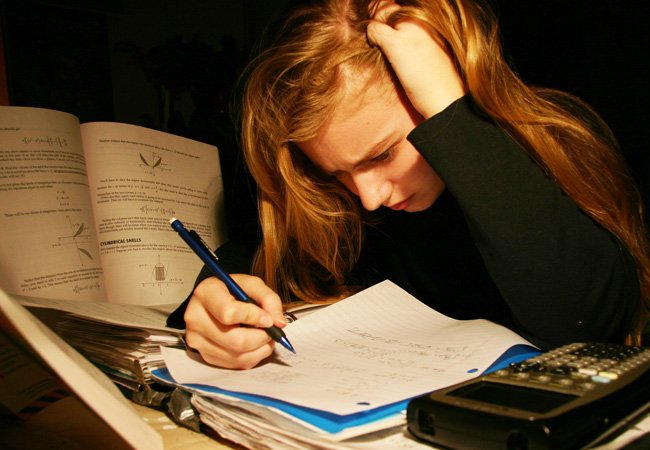
Finals week brings plenty of stress. Of course, grades are enough to worry about. However, on top of test preparation, you’re likely shopping for holiday gifts and getting ready to leave campus for winter break, among other things. Changing your routine to accommodate intensive study sessions adds another layer of anxiety.
It’s important to remember that it’s normal to feel stressed under such conditions. You wouldn’t be human if you didn’t! Luckily, you can follow these six stress-relieving exercises to keep your discomfort to a minimum.
Keep up with your regular workouts
First, if you’re tempted to take a break from exercising right before finals, please don’t. Sitting for hours on end isn’t good for anybody. Exercise is essential for health and stress relief. Any type of movement is helpful, but you can tailor your routine to suit your mood.
- If you need to let off some steam, lifting weights is a good option.
- If you feel fidgety or anxious, try cardio to burn off negative energy.
- If your mind wanders when you’re trying to study, yoga can help you regain your concentration.
- If you’re exhausted or feeling under the weather, do a few minutes of mild, static stretching.
Stretch at your desk
Apart from your workout sessions, you can exercise while you’re sitting. Every once in a while, stop what you’re doing and take some time to release muscle tension.
- Tilt your head forward, backward, and to each side. Turn your head to the left, and then to the right. Finish with some slow neck rolls, taking care not to let your head drop too far backward.
- Prevent overuse injuries in your arms by massaging them from just above the elbow down to your wrists. Rub your hands and gently pull on each finger. Open and close your hands several times. Flex and extend your wrists, and then rotate your hands in both directions.
- Flex and extend your ankles and rotate them as well for good blood circulation in the legs.
Practice deep breathing
It might seem inconsequential, but slowing down your respiration rate can really improve your stress levels. When you’re concentrating or overwhelmed, you might hold your breath or breathe rapidly without realizing it. Your brain won’t get as much oxygen, and your blood pressure could rise.
Set an alert on your phone or computer that reminds you to pause and become aware of your breathing. The normal respiration rate for an adult is 12 to 16 breaths per minute. With practice, you can slow that rate down significantly for just a minute or two. Simply count to four while you inhale and exhale. Once you resume your normal breathing pattern, you should feel calmer and more focused.
Try progressive muscle relaxation
Another trick for beating stress is to squeeze and release different parts of your body. You can do this while sitting or lying down. First, clench the muscles in your feet, and hold for up to 10 seconds. Relax. Work your way up to your head by focusing on each of these parts sequentially:
- Feet
- Calves
- Thighs
- Buttocks
- Stomach
- Upper back
- Hands
- Arms
- Shoulders
- Face
Massage your face and head
Stimulate blood circulation and further help your muscles relax with a mini-massage. This is especially great to do after the progressive relaxation exercise.
- Rub the back of your neck.
- Use your thumbs to press on the base of your skull.
- Massage your scalp by moving it with your fingers.
- Move to your face. Stroke all areas of your face gently with your fingertips. Using very light pressure, squeeze or pinch the skin around the eyes, mouth, and jaw. Massage the area above and between your brows with your index fingers.
Meditate for a moment
You’ve read it before here and elsewhere, but aside from deep breathing, meditation is one of the most effective stress-busters. If you think emptying your mind is too difficult, remember: That’s why it’s called a “meditation practice.”
Nobody can block all thoughts for hours or even part of an hour right off the bat. Taking just a few minutes to clear your head by focusing on a peaceful video and/or listening to soothing music is well worth it. Over time, you’ll be able to sit for longer periods.
These simple stress-relief exercises will help you power through extreme study sessions without compromising your health or sanity. Following the principles of yin and yang, remember that you must balance work with breaks for best results. Work efficiently now so you can enjoy your holiday season!
